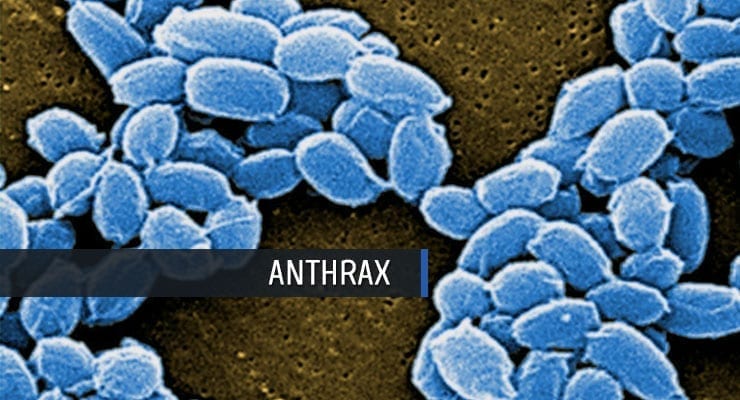An anthrax vaccine that could be administered in a single dose is advancing to its first clinical trial with support from the U.S. Department of Health and Human Services’ Office of the Assistant Secretary for Preparedness and Response (ASPR).
Under a two-year, approximately $14 million contract between ASPR’s Biomedical Advanced Research and Development Authority (BARDA) and Altimmune, Inc. of Gaithersburg, Maryland, the company will begin the first clinical trial of its anthrax vaccine NasoShield.
If the vaccine performs well during clinical studies, the contract could be extended an additional three years and up to a total of approximately $120 million to support additional clinical and nonclinical studies and scale-up manufacturing.
See also: FDA Approves New Injection for Inhalational Anthrax
The NasoShield vaccine is unique in that it is administered as an intranasal spray instead of an injection. The vaccine uses a genetically modified Adenovirus 5 as the delivery system. With this system, a non-infectious virus is modified to include genetic material from the anthrax bacteria genome needed to produce an immune response against anthrax.
The only anthrax vaccine currently approved by the U.S. Food and Drug Administration (FDA) requires three doses.
“The sooner people are protected by vaccine after being exposed to anthrax, the more lives we can save,” said Dr. Richard Hatchett, BARDA’s acting director. “A single dose vaccine is ideal to provide fast protection and peace of mind in the critical days after an incident.”
In May 2016, ASPR issued a task order to one of its Centers for Innovation in Advanced Development and Manufacturing (CIADM) to produce the material that will be used for the clinical trial. It marked the first time a CIADM was used to support the development of a candidate vaccine or drug.
See also: Anthrax Capsule Vaccine Shows Promise
In the planned NasoShield clinical studies, the vaccine candidate will be tested for safety and its effectiveness in eliciting an immune response in humans, although participants will not be exposed to anthrax. If development is successful and the product earns FDA licensure, the product would be administered as a nasal spray to protect against infections caused by inhalation anthrax.
In addition to advanced development of NasoShield, BARDA has supported improvement of the currently licensed vaccine, BioThrax, so that fewer doses may be needed to protect against anthrax, as well as other novel vaccines that may require fewer doses, antibiotics and antitoxins. FDA also has approved use of four anthrax-related antibiotics and two anthrax antitoxins developed with BARDA support.


